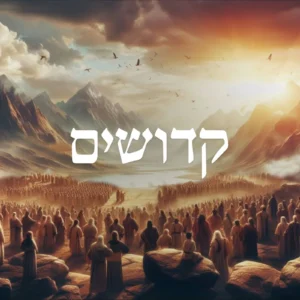Keeping All of the Mitzvot
Near the end of Parashat Kedoshim, we are commanded as follows: “And you shall keep all My statutes and all My judgments, and do them…” (Vayikra 20:22). This pasuk is in fact a repetition of what we learned at the end of the last parasha: “And you shall keep My statutes and My judgments which, if a man do, he shall live by them…” (ibid. 18:5)…
We can notice a difference between the two pesukim in these parshiot. In our parasha the word “kol” (all) appears: “…all My statutes and all My judgments…”…
This, then, is the message the Torah is conveying in our parasha. “You shall keep ALL My statutes and ALL My judgments” – this is not merely a quantitative requirement but rather a demand for all-encompassing quality. The Torah must be fulfilled as a single unity, on all its levels.
The Complete Mitzva of Judging Others Righteously
Let us examine the siginificance of this view in relation to one of the mitzvot mentioned in our parasha: “You shall do no injustice in judgment; you shall not respect the poor person, nor honor the mighty; you shall judge your neighbor in righteousness” (ibid. 19:15)…
In this case it is clear that if a person fulfils only one part, such as not favoring the poor, but neglects the other, i.e. not favoring the wealthy, then the encompassing principle of “in righteousness shall you judge your neighbor” is damaged, and even the part which he fulfils cannot be complete.
Perfect but Incomplete
So it is with the entire Torah. Even if a person is “perfect” in one area but not in another – or even within in a single area of observance, if he fulfils one part but not another – then, even if the two areas seem unconnected, this affects and reflects on everything. If a part is impaired, then the whole cannot be complete.
True, “there is no righteous person on the earth who does only good and sins not;” certainly no one is capable of fulfilling the Torah in its entirety, in all its detail and aspects. However, a person must realize and understand that his task and his aim are to strive towards this goal…
DISCLAIMER
The above excerpts/quotes are provided by Emor precisely as they appear in the original source, without any modifications or corrections to typos. Text within square brackets, as well as subtitles and bold formatting, are added by Emor for emphasis, clarification, or commentary, and the original content has not been changed.

